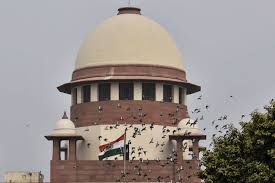CONCERNS OVER JUDICIAL CONDUCT

- 29 Sep 2024
Background
A recent incident involving Justice V Srishananda of the Karnataka High Court has raised serious concerns regarding judicial comments and conduct. During a hearing, Justice Srishananda referred to a locality in Bengaluru as being “in Pakistan” and made an objectionable remark against a female lawyer. Although he subsequently apologized, the Supreme Court, led by Chief Justice D Y Chandrachud, expressed serious concern, highlighting the rarity of such judicial reproach.
Constitutional Framework for Judicial Discipline
Impeachment: The Sole Recourse
Judges of constitutional courts, including the Supreme Court and High Courts, enjoy substantial protections to maintain independence from executive interference. However, this raises the question of accountability: who oversees the judiciary?
- Article 124(4): This article outlines that judges can only be removed through impeachment, which requires a political process involving both Houses of Parliament. The grounds for impeachment are limited to "proved misbehaviour" or "incapacity."
- High Standards for Impeachment: The necessity for a two-thirds majority in both Houses makes successful impeachment exceedingly rare. Historically, only five impeachment proceedings have been initiated, with only one resulting in successful impeachment (Justice Soumitra Sen).
Challenges in Addressing Judicial Misconduct
Certain actions, such as indiscipline or bias, may not meet the impeachment standard but still warrant attention. The Supreme Court faces a dilemma: how to address these issues without the option of impeachment.
Mechanisms for Judicial Accountability
Judicial Intervention
The Supreme Court can intervene through judicial action, as evidenced by past cases:
- Contempt of Court: In 2017, the Supreme Court sentenced Calcutta High Court’s Justice C S Karnan to six months’ imprisonment for contempt. This case raised concerns about one constitutional court punishing judges of another, as it set a precarious precedent.
Transfer Policy
The Supreme Court also influences High Court judges through its Collegium system:
- Collegium Recommendations: The Collegium recommends the transfer of judges, which can serve as a disciplinary tool. The case of Justice P D Dinakaran illustrates this practice. Facing allegations of corruption, he was transferred from Karnataka to Sikkim, a move criticized as merely “transferring corruption.”
Conclusion
The incident involving Justice Srishananda underscores the complexities of judicial accountability in India. While the Constitution provides for impeachment as the only formal recourse against errant judges, the high threshold for such proceedings necessitates alternative mechanisms for maintaining judicial integrity. The Supreme Court's ability to intervene and the use of transfer policies are critical components in addressing judicial misconduct, but they also raise questions about the balance between accountability and judicial independence.
